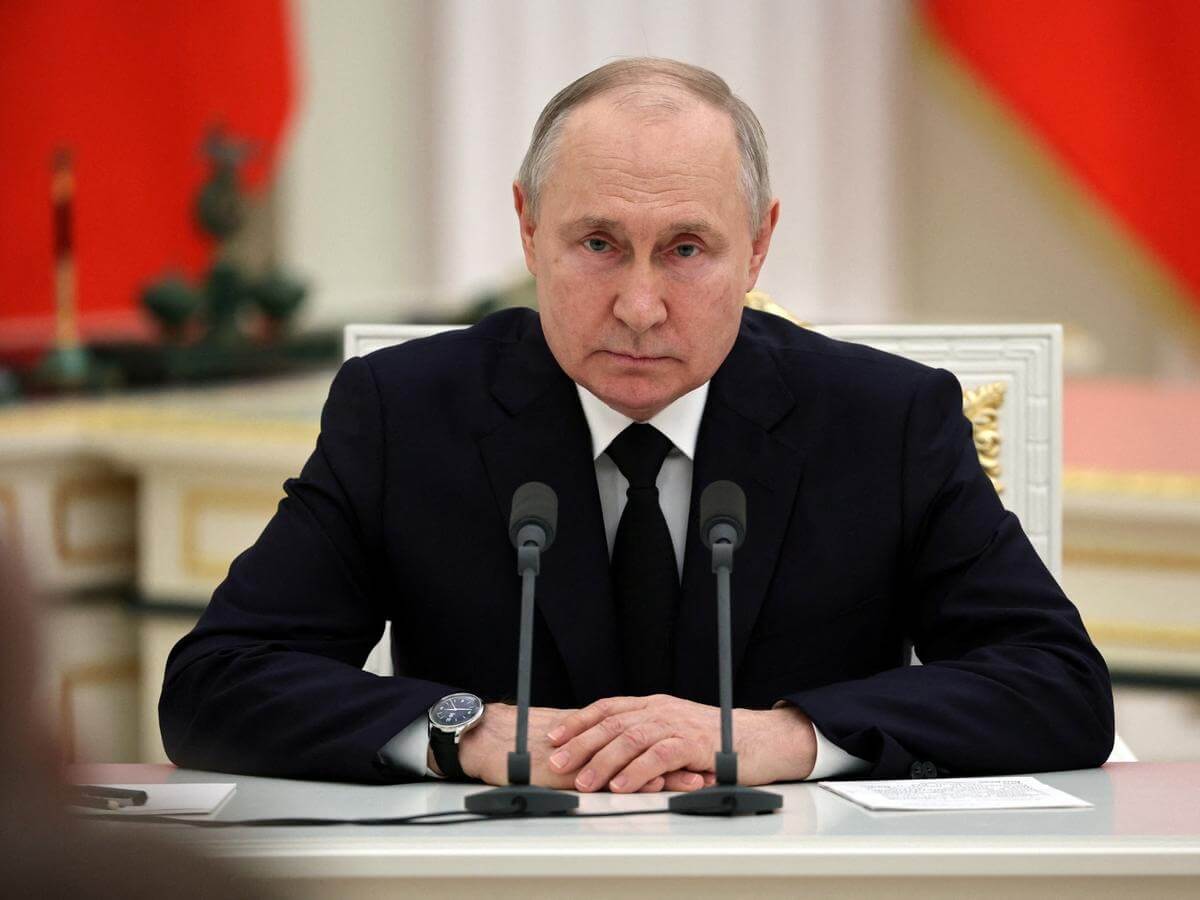While headlines focus on Ukrainian drone strikes hitting Moscow airports—dramatic spectacles that briefly capture global attention—the real story unfolds in spreadsheets, budget deficits, and the quiet desperation of a regime frantically consolidating power. Putin’s Russia isn’t just losing a war; it’s experiencing systemic organ failure.
The clearest sign came last week when the Duma rubber-stamped legislation granting the FSB its own prison system. This isn’t bureaucratic housekeeping—it’s the playbook of a dictator who knows the walls are closing in. The last Russian leader to give his secret police independent detention facilities was Stalin during the Great Terror. Putin, himself a former FSB director, understands what this means: when you can’t trust other ministries to contain dissent, you build your own parallel justice system.
What’s particularly striking is how this mirrors the broader pattern of paranoid consolidation. Take Roman Starovoitov, the transportation minister who allegedly committed suicide just hours before Putin fired him. The timing feels less like coincidence and more like a message—nobody escapes the regime’s reach, not even in death. When government officials start dying under mysterious circumstances, it’s usually a sign that the system has moved beyond normal authoritarianism into full crisis mode.
The numbers tell an even grimmer story. Russia’s oil and gas revenues—roughly 40% of the national budget—plummeted 34% year-over-year in June. This forced Putin to triple his projected deficit for 2025, a financial maneuver that would make any finance minister break into a cold sweat. Russian crude now trades at $52 per barrel when the Kremlin budgeted for $70. That $18 gap might sound modest, but when you’re funding a massive war machine, every dollar counts.
What’s more troubling is the domino effect across Russia’s economy. The country’s energy giants—Rosneft, Lukoil, Gazprom Neft—collectively lost $4.5 billion in the first quarter alone. Rosneft’s profits collapsed 74%, while Lukoil fell 82%. These aren’t temporary setbacks; they’re the financial equivalent of multiple organ failure for companies that have propped up the Russian state for decades.
The real estate sector offers another window into Russia’s unraveling. Sales dropped 13% nationally, but in Moscow—the showcase of Putin’s success—new building sales crashed 42%. Developers are filing for bankruptcy at alarming rates, and the middle class has simply stopped buying. When people won’t invest in property, it usually means they’ve lost faith in the future itself.
Perhaps most revealing is how ordinary Russians are changing their behavior. Restaurant visits fell 33% while food costs surged 22-50%. People aren’t just tightening their belts—they’re fundamentally altering how they live. The government’s National Welfare Fund, which pays for pensions and social services, is burning through money so quickly that economists predict it could be depleted by 2026.
The ruble tells its own story of decline. Currently trading around 80 to the dollar, it’s expected to devalue to 120-130 per dollar just to balance the books. That’s not economic policy—that’s financial triage. Russians face losing half their savings’ purchasing power in the coming months, a devastation that will ripple through every aspect of daily life.
Banks are already restricting daily withdrawal limits to prevent runs, while the central bank pumps repo loans into institutions that are, frankly, insolvent. These aren’t the actions of a stable financial system; they’re the desperate measures of a regime buying time.
The regime’s response has been predictably authoritarian: more surveillance, more repression, more control. Constantine Strukov, one of Russia’s richest oligarchs and the country’s third-largest gold producer, was arrested on his private jet while authorities moved to nationalize his entire company. When governments start seizing the assets of their own elite, it’s usually because they’re running out of options.
Ukraine’s strategy of bringing the war home through drone strikes serves a psychological purpose beyond military targets. Each successful strike on Russian soil demonstrates the regime’s inability to protect its own people, undermining the fundamental bargain between ruler and ruled. Putin promised security and prosperity; instead, he’s delivered economic collapse and vulnerability.
The tragedy is that Putin’s propaganda machine remains remarkably effective at obscuring this reality, both domestically and internationally. While the Russian economy hemorrhages, the Kremlin spends enormous resources maintaining the illusion that everything is manageable. This disconnect between perception and reality might be the most dangerous aspect of the current crisis—when systems fail gradually, then suddenly, the collapse often catches everyone by surprise.
The historical parallel isn’t lost on anyone paying attention. Like many dictators before him, Putin is retreating into an ever-smaller circle of trusted allies while the state he built crumbles around him. The FSB prisons aren’t just about suppressing dissent—they’re about preparing for the kind of internal resistance that emerges when economic collapse makes continuation of the current system impossible.
What makes this particularly sobering is the recognition that Russia’s collapse won’t be confined to its borders. A nuclear-armed state undergoing systemic failure poses risks that extend far beyond Ukraine or even Europe. The question isn’t whether Putin’s regime will survive—the economic fundamentals suggest it won’t. The question is what comes next, and whether the transition will be managed or catastrophic.
For now, the slow-motion collapse continues, masked by propaganda and sustained by the last reserves of a once-wealthy state. But math, as they say, is unforgiving. And the numbers suggest that Putin’s Russia is running out of time.
